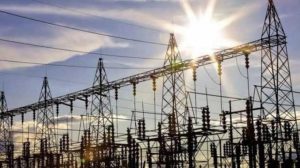In May, Pakistani Prime Minister Shehbaz Sharif and Iranian President Ebrahim Raisi inaugurated a border marketplace and a power transmission line at the Mand-Pishin border crossing. The new transmission line is expected to provide an additional 100 MW of power to Pakistan’s port city of Gwadar.
Iran and Pakistan share a 900-km-long border and rely on each other for trade, with oil, gas and power comprising Pakistan’s major imports from Iran.
With the tightening of Western sanctions on Iran since 2013, oil and gas are mostly imported into Pakistan through illegal routes — the biggest sources of income for border towns in both countries. Pakistan also heavily relies on Iranian electricity, especially for three of its southwestern districts: Gwadar, Kech, and Panjgur in the Makran region.
Pakistan began constructing its first power transmission line with Iran in 2002 with the inception of the Chinese-funded port of Gwadar located on its Arabian Sea coast. Currently, Iran is the sole provider of power to Gwadar; electrical generators at the Gwadar Port Free Zone provide a small proportion (8.5 MW). Iran supplies over 70 percent of the 142.5 MW of electricity provided to the Makran region.
But of late, an increasing number of people who can afford it are switching to renewable energy (i.e., solar power) for daily use — not out of climate concern, as one would assume, but because the current supply is insufficient.
With population growth, internal migration into Gwadar, and infrastructure development in and around the area in the last two decades, the demand for electricity has surged, while supply has been stagnant. Faults in transmission lines continue to cause power outages for several days in a row, especially during summer when temperatures can go as high as 40 to 50 degrees Celsius.
Power shortages in Gwadar and the surrounding districts have long challenged the region and the burden on existing transmission lines may double as the new airport becomes operational. The Gwadar international airport, which is being constructed at an estimated cost of $230 million, is part of the China Pakistan Economic Corridor (CPEC), and is expected to be operational soon. This is where the recent Pakistan-Iran energy deal can prove beneficial to Pakistan.
The Pakistan-Iran energy deal is just as important for Iran, which has large oil reserves and is one of the world’s largest natural gas-producing countries. Yet it has not been able to fully benefit from its oil and gas wealth because of embargos on Iran’s trade.
The illegal oil trade is one of the limited options that bring in cash flows to benefit the Iranian economy, especially in its border towns. Meanwhile, Pakistanis benefits from lower priced oil and gas and no taxes.
But the illegal trade results in Iran losing foreign exchange. It is therefore looking for larger energy deals with governments. Setting up border markets and opening transmission lines are steps in that direction. Although Iran may be well aware of Pakistan’s current economic crisis, it is still a deal for Iran to exchange its resources for debt rather than not exporting at all.
The foreign policies of Iran and Pakistan have encouraged bilateral trade and cooperation, but geopolitics have impaired the relationship. Cash-strapped Pakistan would benefit from reduced or no tariff imports from Iran. But it relies on the United States too and cannot defy Washington beyond a point to buy oil and gas from Iran.
Earlier this year, the long overdue Iran-Pakistan gas pipeline deal was brought under discussion.
The two countries signed a deal for a 2,775-km liquefied petroleum gas (LPG) pipeline in 1995. Iran completed its side of the line in 2011. But, international sanctions on Iran created dilemmas for Pakistan, and the country did not complete its side of the pipeline thereafter, despite an ongoing energy crisis.
Pakistan faces an $18 billion penalty if it does not complete the pipeline on its side by March 2024. Although Islamabad has raised the issue with officials in Washington from time to time, the latter has repeatedly opposed the deal. More recently, in May this year, Pakistan’s Minister for Petroleum Musadik Malik once again raised the issue with American officials, but Pakistan is still waiting for a waiver as Washington is still “reviewing the request.”
Already in an economic and energy crisis with huge international debt, Pakistan’s financial troubles will deepen if it has to pay the penalty for an incomplete pipeline.
Many in Pakistan are opposed to the country’s over-reliance on Iran for its electricity supply for an important port city and its new international airport. But around the world, neighboring countries rely on one another for the exchange of goods and services.
What is needed is a shift in the Western policy of imposing international sanctions on trade in much-needed resources, which deepens the economic crises faced by poorer countries.

































